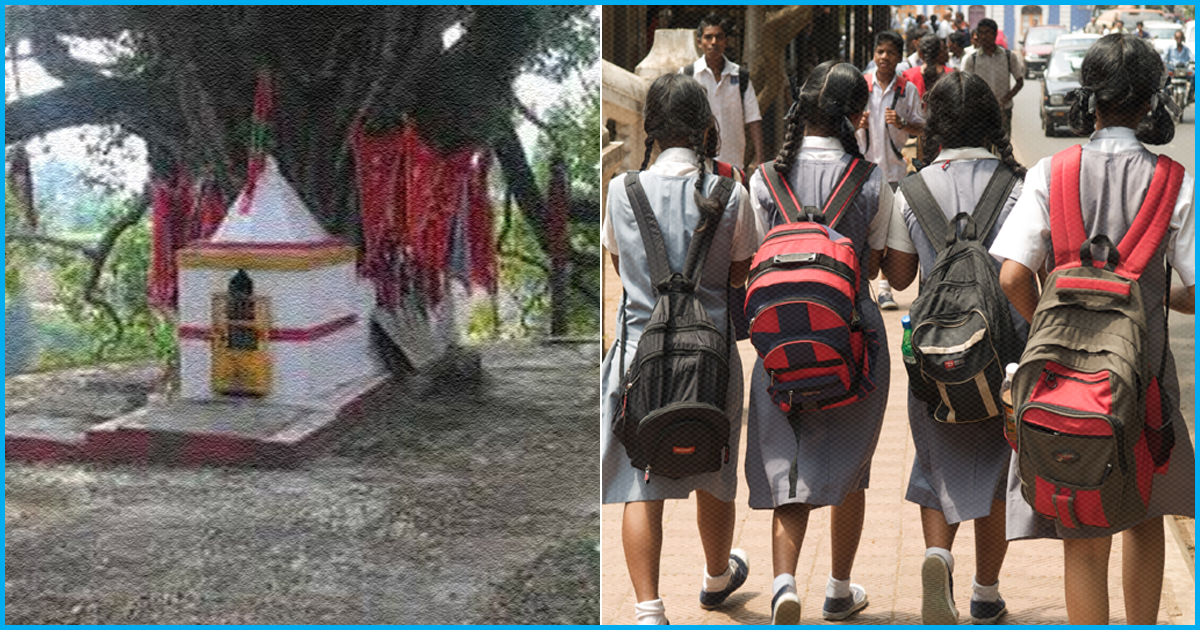Menstruation is a taboo in our country to such an extent that parents in Rautgara village in Pithoragarh tehsil are refraining themselves from sending their daughters to school. The young girls of the village are stopped from going to school during the 5 days of their period.
Every month, the girls are not allowed to go as the road they pass by has temples and deities. Locals believe that if the girls pass through, the holy temples will get desecrated. This mentality had forced the parents to confine their daughters at home. Whereas, some girls who are determined to complete their education, have shifted to nearby villages or towns with their relatives to attend school.
This issue was first spotted by an NGO called Uttarakhand Mahila Manch. Talking to The Times of India, Uma Bhatt, who led the team, said that the girls go to Sail Government Intercollege and have been skipping school every month for 5 days. A team of the local administration is supposed to visit the village to spread awareness about menstruation.
“A temple dedicated to local deity Chamu Devta falls on the route to school. Teachers have been trying to encourage girls to attend classes but parents fear backlash from the community and thus don’t allow the girls to go to school,” Bhatt said
A former teacher of the school said that as the people there are very conservative, many people agree to this norm as they prefer sticking to age-old traditions and views.
Awareness about menstruation
Even in India, many communities believe that a menstruating woman is ‘impure’. A 2016 study by the TATA Institute of Social Science (TISS) found that eight of ten Indian girls are not allowed to enter religious shrines when they are on their period, six out of ten girls are not permitted to touch food in the kitchen and, three out of ten are forced to sleep in a separate room.
In our urban cities too, sanitary pads are wrapped in black plastic bags or paper before being sold because of the shame associated with periods. Even girls feel embarrassed to talk about their periods despite coming from good schools and receiving the best education because, at home, they are not allowed to enter the ‘puja’ room or the kitchen when it’s their ‘time of the month’.
The prevalence of the taboo even in the 21st century can be attributed to low awareness about menstrual hygiene in both men and women, low levels of education and understanding of puberty and reproductive health.
The Logical Indian hopes that awareness is created about menstruation in the village so the girls can continue their education unhindered.
Also Read: Advocating Menstrual Health In Jharkhand’s Tribal Area, Meet PhD Student Srilekha Chakraborty












